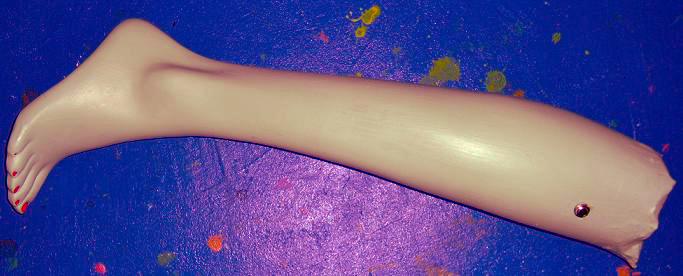Jason DeYoung
Between mouthfuls of imaginary sips of tea, Merry told me, “Act like you mean it.” She and I were young at the time. I don’t remember how young, but young enough to be seated in miniature chairs at a miniature table. Her small hands gripped a plastic teapot, ready to pour more imaginary tea into my cup once I finished. She was dressed in my spare set of fatigues.
I sipped Merry’s phantom tea and made some sucking sounds and then wiped my lips. I exhaled exaltedly. “How’s that?” I asked.
“Better.”
I put my legs on the table and tried to lean back in my chair. “No, no. You can’t do that at a tea party.” And I immediately took my legs down. “Boys don’t know anything about how to act.” She looked away as if grief-pierced and held her chest for a moment and then looked back. “At a tea party, we sip our tea, eat our biscuits”— she pointed to a plate where imaginary biscuits cooled (I couldn’t help imagining them stale, ridged things)—“and we talk.”
“What do we talk about?”
“Our periods. Our husbands. The whiskery pervert who lives next door. College days.”
“I don’t know anything about any of that.”
“You can pretend can’t you?”
I shrugged and nodded.
Merry began talking, but I didn’t understand anything of what she talked about. She told me she knew her period was coming because she had the urge to call a repairman. “Why,” I asked. “Because things needed to be fixed,” she said, making me feel stupid. She went on about her husband and how hard he worked. How undemanding he was. How their lives were so tame. “I really wish he’d have an affair sometimes. You know?”
I didn’t.
“I mean,” Merry tousled her hair, “I just can’t go on living dissatisfied, you know. Will I ever have another adventure?”
“Do you want to go outside and shoot some al-Qaeda terrorists with me?”
“That’s not an adventure, silly.”
“It is so.” She was still dressed in my fatigues; we had just come in from a day’s killing, and we’d saved numerous civilians, and she hadn’t thought it was silly at the time. I slurped from my cup.
“That’s just pretend,” she said.
Merry lifted the teapot and poured more tea for me. How she knew my cup was empty I would never know. After she put the pot down, she lifted the plate that she said had warm, buttered biscuits resting. She offered me some; the sleeve of her shirt rode up, exposing her small wrist. I took it, but the biscuit was stale and earthy in my hand. It was sea rations—I was thankful to be fed.
“Tell me about how your wife.”
“I don’t have a wife, Merry.”
“Is she good to you? Does she like your little adventures?”
“I don’t have a wife.”
Merry looked cross at me. She started telling me about her child, a daughter who was very young, and how happy it made her to play games with the little girl. “She’s darling. She’s so proud she can walk now. She toddles with such a big grin on her face.”
“Does your daughter like to shoot guns, like my son does?”
“You don’t have a child!”
“But I do. I have a son. He likes to shoot people and ride his bike. We do tricks together in the driveway. We pop rad wheelies.”
“You don’t have a son, because you don’t have a wife!” A pinched expression clutched Merry’s face, like barb-caught cloth: “Jake, you’re not playing. You’re not acting right.”
“I don’t like this game,” I said.
“What do you mean? You said we could play whatever I wanted. You’re not acting right.”
What was wrong with my imaginary son? I took a sip from my cup. Empty.
“Now you boys pretend all the time. Killing people. That’s absurd. Life’s not like that.
When is the last time your father killed someone?”
I shrugged.
“It’s vulgar—the things you imagine. Your fantasies are vulgar.” And then, with imperturbable patience, Merry lifted the teapot. “More tea?”
I lifted my cup to the pot, watched for her imaginary tea to pour out, and tried to imagine my wife, so that I could have the son I wanted. I took a bite of Merry’s biscuit. It softened in my mouth, and, yes, it tasted sweeter, as if had been buttered. But that didn’t mean I liked it.
Jason DeYoung is a fiction, essay, and travel writer living in Washington, DC. His has published work in Painted Bride Quarterly, Gargoyle, Harpur Palete, and Writer’s Carousel, among others; and was a contributing editor to Not For Tourists: Guide to Washington, DC. He is a former Managing Editor of Poet Lore.


